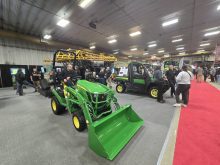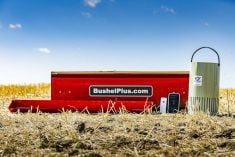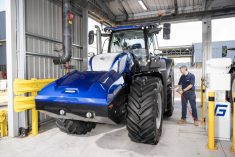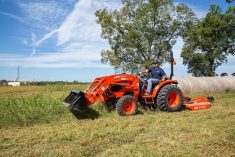It’s a battle that’s been waged on many fronts for the past several years: the right to repair high-tech farm equipment. In fact, the fight against brands limiting repair access goes well beyond farm machinery into many different product categories from home electronics to cars.
When it comes to farm equipment, though, John Deere has found itself vilified by those pressing for unrestricted access to the computer systems behind the operation of farm machines. That, despite the fact all of the major brands have adopted similar positions restricting access.
As is typically the case in broad disputes like this, particularly in the United States, the fight has wound its way into the courts, with a few states set to introduce anti-trust legislation to mandate brands allow owners the ability to repair and otherwise tinker with the brains of new farm equipment.
Read Also
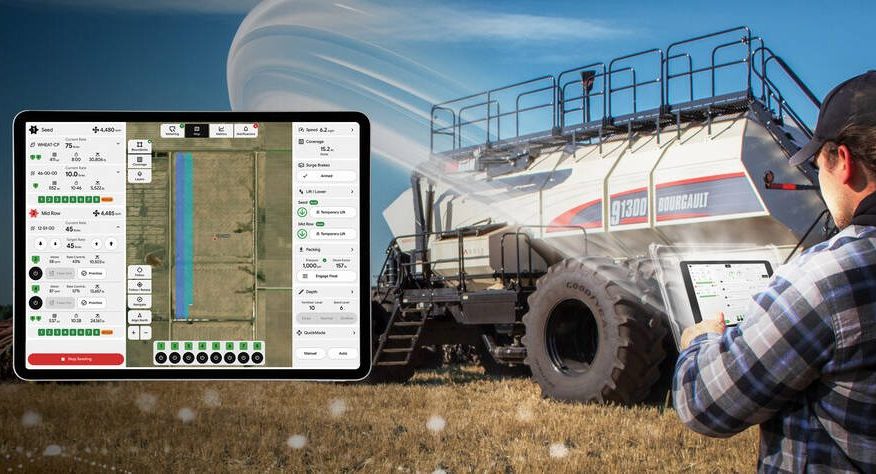
Bourgault rolls out new drill, opener and upgrades to BiC system
Bourgault in mid-January announced the release of three new products for its 2027 model year lineup: a new 50-foot drill, a new twin-shank opener and an upgraded BiC system.
In the past, Deere had made an effort to dampen criticism of its reluctance to allow anyone other than dealership technicians into the ECMs of its machines, mainly by promising to loosen things up a little. That led to the release of Deere’s Customer Service Advisor in 2022.
At the time it was announced, Deere described Customer Service Advisor as a “digital diagnostic tool that allows users to connect with their machines to clear and refresh codes, take diagnostic readings and perform limited calibrations.” It was made available through a subscription service and can connect to machines with an Electronic Data Link.
However, more than a few critics have described the Customer Service Advisor as inadequate, with a limited range of capabilities and not meeting the needs of owners who want to do their own serious repair work or of independent repair shops.
In January, Deere announced it had reached an agreement on the right to repair with the American Farm Bureau Federation (AFBF), signing a memorandum of understanding that, as Deere describes it, “ensures farmers’and ranchers’ right to repair their own farm equipment.”
It is the culmination of several years of discussions between AFBF and John Deere. The announcement has since made headlines in several publications, with many cheering a final win in the right to repair struggle.
But is it?
The memo of understanding is just that, a kind of gentleman’s agreement that has no legal basis should either party change its mind or not live up to its promises. In fact, the ability of either party to withdraw from the agreement is written right into it. Here’s how that reads.
“In the event that Manufacturer or AFBF concludes that, due to changed circumstances, the MOU may no longer be viable, that party shall provide written notice to the other party of its intent to withdraw from the MOU due to the change in circumstances.”
In general, though, the language of what was agreed to sounds like most of what proponents of the right to repair movement were looking for. Deere promised farmers and repair shops “access on Fair and Reasonable terms to Manufacturer’s Tools, Specialty Tools, Software and Documentation,” including: Customer Service Advisor, operator, parts and service manuals, product service demonstrations, training, seminars or clinics, on-board diagnostics via diagnostics port or wireless interface, other publications with information on service, parts, operation and safety.
Also significant in the MOU are these sections: “(The) Manufacturer shall ensure that a Farmer has electronic access on Fair and Reasonable terms to Manufacturer’s Codes and Data.”
And: “(The) Manufacturer shall make available to the Farmer, on Fair and Reasonable terms, any special Documentation and Tools needed to disable the lock, immobilizer or function and to re-set it when disabled in the ordinary course of diagnosis, maintenance or repair of the Agricultural Equipment.”
What does Deere get in return for these concessions? Basically, the AFBF agrees not to pursue any further court action to mandate Right to Repair. Although that doesn’t stop other interested groups from doing so. And there are others.
It’s important to note this agreement applies to the U.S. market. When Deere’s PR agency was asked if such provisions would apply to Canada, the reply was the company had no specific statement regarding that but had only this general statement.
“The agreement with the American Farm Bureau formalizes the longstanding commitment Deere has made to ensure our customers have the diagnostic tools and information they need to repair their machines.
“We look forward to working alongside the American Farm Bureau and our customers in the months and years ahead to ensure farmers continue to have the tools and resources they need to diagnose, maintain and repair their equipment.”
None of the other major brands were included in this agreement, and given it has no legal basis for enforcement and many of its terms, such as “fair and reasonable” aren’t well defined, its effectiveness will depend on the goodwill coming from Deere. If any of the proposed legislation in any of the U.S. states does get passed, things may change even more.
Only time will tell if other brands join in with the details of this agreement or if this new approach will satisfy producers. And, importantly, if the terms of this agreement will be extended to Canada. In reality, it seems like the right to repair is still yet to be settled.





